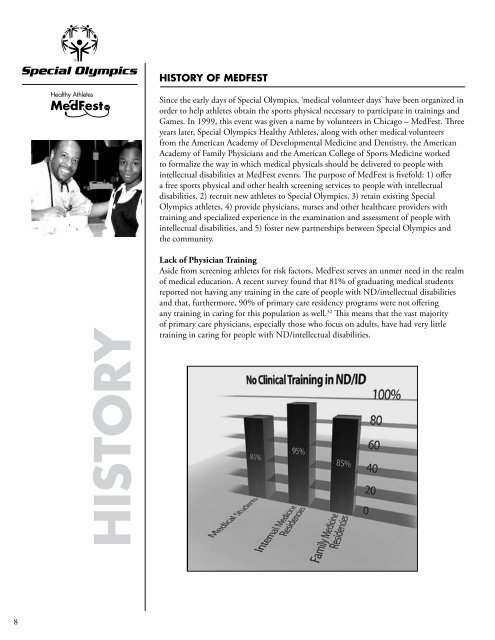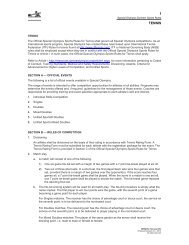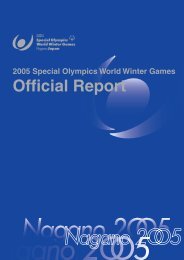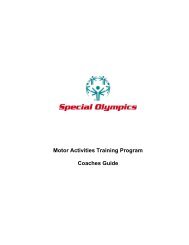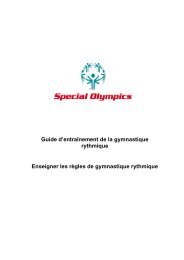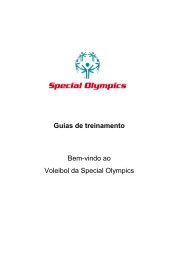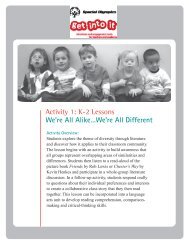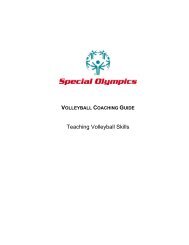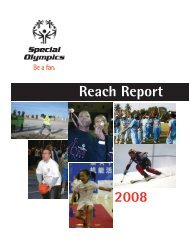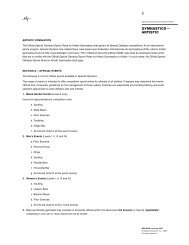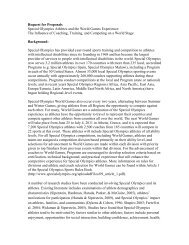MedFest Manual for Clinical Directors - Special Olympics
MedFest Manual for Clinical Directors - Special Olympics
MedFest Manual for Clinical Directors - Special Olympics
Create successful ePaper yourself
Turn your PDF publications into a flip-book with our unique Google optimized e-Paper software.
8<br />
HISTORY<br />
HISTORY OF MEDFEST<br />
Since the early days of <strong>Special</strong> <strong>Olympics</strong>, ‘medical volunteer days’ have been organized in<br />
order to help athletes obtain the sports physical necessary to participate in trainings and<br />
Games. In 1999, this event was given a name by volunteers in Chicago – <strong>MedFest</strong>. Three<br />
years later, <strong>Special</strong> <strong>Olympics</strong> Healthy Athletes, along with other medical volunteers<br />
from the American Academy of Developmental Medicine and Dentistry, the American<br />
Academy of Family Physicians and the American College of Sports Medicine worked<br />
to <strong>for</strong>malize the way in which medical physicals should be delivered to people with<br />
intellectual disabilities at <strong>MedFest</strong> events. The purpose of <strong>MedFest</strong> is fivefold: 1) offer<br />
a free sports physical and other health screening services to people with intellectual<br />
disabilities, 2) recruit new athletes to <strong>Special</strong> <strong>Olympics</strong>, 3) retain existing <strong>Special</strong><br />
<strong>Olympics</strong> athletes, 4) provide physicians, nurses and other healthcare providers with<br />
training and specialized experience in the examination and assessment of people with<br />
intellectual disabilities, and 5) foster new partnerships between <strong>Special</strong> <strong>Olympics</strong> and<br />
the community.<br />
Lack of Physician Training<br />
Aside from screening athletes <strong>for</strong> risk factors, <strong>MedFest</strong> serves an unmet need in the realm<br />
of medical education. A recent survey found that 81% of graduating medical students<br />
reported not having any training in the care of people with ND/intellectual disabilities<br />
and that, furthermore, 90% of primary care residency programs were not offering<br />
any training in caring <strong>for</strong> this population as well. 32 This means that the vast majority<br />
of primary care physicians, especially those who focus on adults, have had very little<br />
training in caring <strong>for</strong> people with ND/intellectual disabilities.


